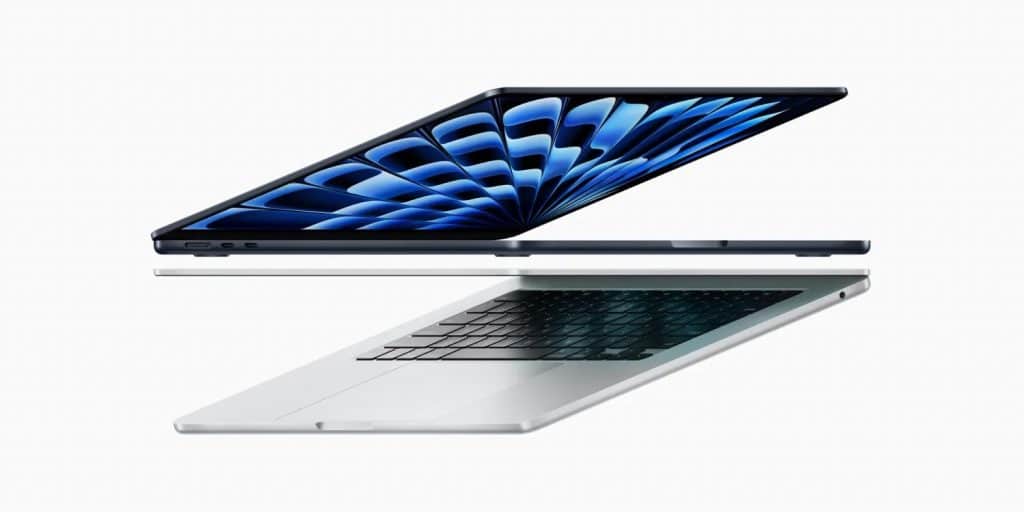The MacBook Pro’s camera notch has been a point of contention since its introduction. While it houses the camera for video calls, its presence disrupts the otherwise seamless display. The latest patent titled “Camera integration for portable electronic devices” presents a solution: a camera system that can be repositioned or removed entirely.
This concept offers the promise of enhancing the user experience by eliminating the need for a fixed notch and introducing customizable camera placement.
Understanding the Patent
The patent describes a camera that can be removed or repositioned, housed within a rotating section of the MacBook’s display. The system is designed to provide users with the ability to adjust the camera’s placement or detach it altogether when not in use.
In addition to the removable camera, the patent details a screen design that rotates to offer different viewing and functional modes. This innovation could lead to increased flexibility for tasks like video calls, content creation, or presentations.
By integrating the camera into a rotating or detachable module, Apple aims to provide a solution that meets the needs of modern users who prioritize adaptability and privacy.
Benefits of the New Design
The proposed design has the potential to solve several issues associated with current MacBook models, while introducing new functionalities that enhance usability.
Eliminating the static notch could lead to a seamless, edge-to-edge display. This design would maximize screen real estate and create a more immersive viewing experience, ideal for professionals and creatives.
A detachable or adjustable camera provides flexibility for users who require different angles during video calls or content creation. It also eliminates the need for external accessories, such as third-party webcams, to achieve better positioning.
Privacy-conscious users often cover their laptop cameras to prevent unauthorized access. A removable camera would provide a physical solution to this concern, allowing users to detach the module entirely when not in use.
The absence of a notch would refine the overall look of the MacBook, aligning with Apple’s minimalist design philosophy. This change could make future models even more visually appealing.
Challenges and Considerations
While the concept offers significant benefits, Apple would need to address several challenges to make this design a reality.
A detachable camera module introduces potential wear and tear over time. Apple would need to ensure that the materials and mechanisms are robust enough to withstand regular use.
The design must remain intuitive and simple to operate. Any complexity in detaching or repositioning the camera could deter users from embracing the feature.
Innovative designs often come with higher production costs, which could translate to increased retail prices. Balancing innovation with affordability will be key to ensuring widespread adoption.
The new camera system would need to support advanced features like Center Stage, high-resolution video recording, and low-light performance to maintain the MacBook’s reputation as a premium device.
What This Means for MacBook Users
If realized, this design could revolutionize how users interact with their laptops. Professionals, students, and creatives would benefit from the enhanced display and flexible camera placement, while privacy-conscious users would gain peace of mind with the ability to remove the camera entirely.
Additionally, the rotating screen could open up new possibilities for multitasking and hybrid work environments, allowing the MacBook to adapt to a variety of scenarios.
Future Implications
This patent reflects Apple’s commitment to pushing the boundaries of laptop design. While it remains uncertain if and when this concept will be implemented, it signals Apple’s intent to address user concerns and improve upon existing designs.
As competitors also explore innovative laptop features, Apple’s continued focus on aesthetics, functionality, and privacy could set future MacBook models apart.
Apple’s exploration of removable cameras and rotating screens represents a bold step toward redefining laptop design. By addressing concerns around the notch and introducing customizable camera placement, this concept has the potential to elevate both form and functionality.
While challenges remain, the benefits of a seamless display, enhanced privacy, and flexible usability make this patent an exciting glimpse into the future of MacBook innovation.
